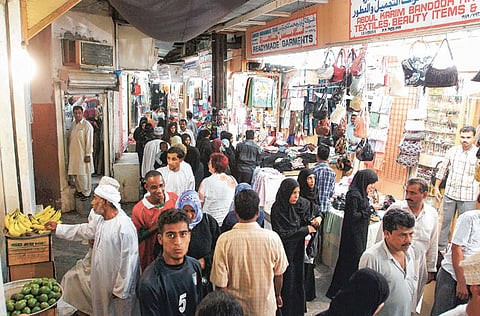Oman wage revision not a complete solution
Omani authorities raised the minimum pay for Omani nationals working in the private sector last week

In a sudden and certainly controversial move last week, Omani authorities raised the minimum pay for Omani nationals working in the private sector. As per the new order, the minimum wage now stands at $520 (Dh1,909) per month, up a hefty 43 per cent. This is an extraordinary one-time hike, and ostensibly reflects a desire to bring about material change in the pay structure offered to Omani nationals working in the private sector.
Purportedly, the move is partly designed to help Omani nationals cope with growing inflationary pressures. However, an inflation rate of about 4 per cent does not warrant such a big move, clearly suggesting other issues were at the stake such as the need to improve living conditions of locals at large.
To be sure, inflation was a real problem back in 2007 and the first half of 2008 on the back of rising oil prices.
In retrospect, oil prices reached the historical maximum of $147 per barrel in July 2008 thanks to steady demand. Yet, oil prices and hence imported inflation dropped following the start of the global financial crisis in the summer of 2008.
Like the other Gulf Cooperation Council (GCC) countries, Oman suffers from imported inflation partly due to the fact that its currency is linked to the US dollar. All GCC countries except Kuwait link their currencies to the dollar. The decline in the value of the dollar, something experienced over the last few years, put inflationary pressures on GCC economies including Oman.
Employment setback
On the negative side, the move falls short of international standards that ban discriminatory pay practices for the same jobs on any basis. Certainly, the authorities could provide benefits to nationals like allowances for housing and utilities.
Also, it is feared that the move could further complicate employment prospects for nationals in the private sector by virtue of making them only more expensive to employ. As of now locals make up only a quarter of workers in the private sector, and the move to raise pay could further complicate their employment prospects.
For their part, officials hope to encourage Omani nationals to seek employment in the private sector, the main source of employment opportunities in the country. It is believed that the public sector already suffers from overstaffing. Statistics point out that Omani nationals account for more than 90 per cent of jobs in government departments. And Vision 2020 calls for ensuring that locals make up 68 per cent of civil servants.
Undoubtedly, the raising of the minimum wage in such a sharp way is partly meant to address the unemployment problem facing the sultanate.
Demographic trends
Going by one report, the jobless rate stands at about 15 per cent of eligible Omani nationals. Yet actual figures are believed to be higher in rural areas and amongst women. Available statistics also bare disturbing demographic trends, with about 43 per cent of the population being below 15 years old.
The new move follows a decision taken about two years ago focusing on restricting issuance of visas to foreign workers in certain professions. These include import and export, cleaning jobs, barber shops, laundry, electronic repair, garbage, cleaning and selling, textile shops, mobile GSM shops, health clubs, workshops in aluminium, iron, wood, car repair, tailoring shops and beauty parlours.
However, employers rightly complain that such a ban would undermine their business prospects mainly due to lack of qualified locals willing to fill in the vacancies. Conversely, raising salaries of locals serves as an alternative to restricting visas for foreign workers.
Dr Jasim Ali is a Member of Parliament in Bahrain.



